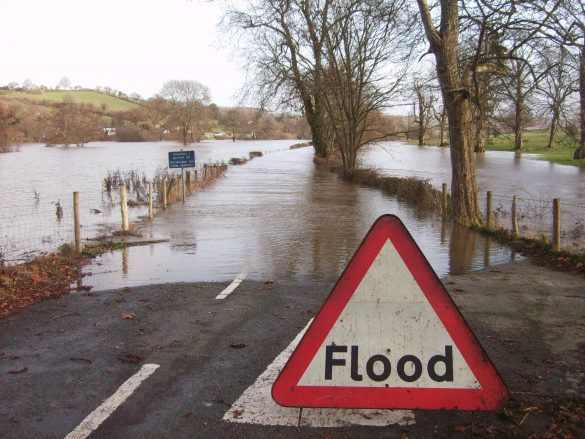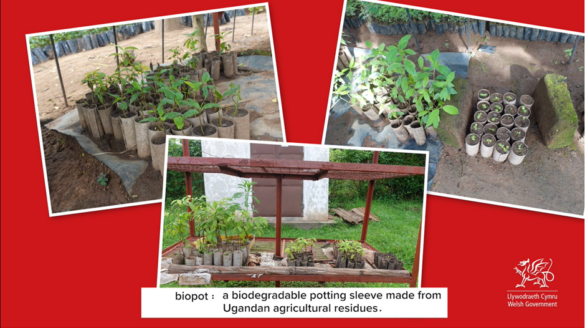Guided by pioneering legislation and strong community participation, the Welsh Government is embedding resilience across policy areas – from ecosystem restoration and local energy to transport, waste, and planning. This integrated approach ensures that adaptation is not a standalone goal, but part of a broader national transition toward a fair, green, and climate-ready future.
The Well-being of Future Generations Act: A Foundation for Adaptation
At the heart of Wales’s climate action is the Well-being of Future Generations (Wales) Act 2015, a globally recognised law that places a legal duty on public bodies to act in the interest of future generations. The Act defines seven well-being goals – including a resilient, healthier, and globally responsible Wales – and ensures that all public policies take a long-term, sustainable approach.
By placing sustainability in legislation, the Act ensures that adaptation and long-term thinking guide every public decision, from infrastructure planning to health, housing, and land management. Internationally recognised as a model for sustainable governance, it is the cornerstone of Wales’s integrated approach to climate action and the foundation on which the country’s adaptation strategy was built.
A Comprehensive Climate Adaptation Strategy
The Climate Adaptation Strategy for Wales, published in 2024, translates this long-term vision into more than 240 cross-government actions designed to strengthen the nation’s preparedness for climate impacts. Priorities include improving flood defences (supported by a record £75 million investment), protecting food security, ensuring the resilience of transport networks, and managing land and marine areas under the “30 by 30” target – to protect 30% of land, freshwater, and marine ecosystems by 2030.
By working with partners across sectors, the strategy seeks to embed resilience throughout society, the economy, and the environment, ensuring Wales is ready to face the challenges ahead.
Restoring Ecosystems: From Peatlands to Forests
Nature-based solutions are central to Wales’s adaptation strategy. The National Peatland Action Programme (NPAP), launched in 2020, has already restored over 3,600 hectares of degraded peatland, protecting more than 2.2 million tonnes of carbon. The programme focuses on restoring hydrology, preventing erosion, and enhancing biodiversity in both upland and lowland sites, delivering long-term benefits for nature, climate, and communities.
Complementing this, the National Forest for Wales, launched in 2020, is creating a connected network of woodlands across the country. By linking ancient and new forests, and engaging communities, farmers, and landowners, the programme promotes biodiversity, climate mitigation, and well-being. The vision is a greener, healthier Wales where forests provide habitats, recreation, and resilience for generations to come.

Coordinated Action Across Sectors and Communities
These initiaves illustrate how adaptation in Wales is built on strong coordination between government, communities, and the private sector. By involving local authorities, landowners, and citizens in design and delivery, these programmes combine national leadership with community-level action, ensuring shared ownership of climate solutions.
Wales’s broader climate journey continues to be strengthened by this joined-up approach. Ynni Cymru, (launched in 2023) expands community-owned renewable energy, helping public bodies and small businesses (SMEs), while the Welsh Government Energy Service supports public and community projects. Since 2018, it has delivered over 600 initiatives, mobilising £270 million in investment to enhance local resilience and energy security across the country. At the same time, the Single-use Plastics Ban (2023) and Wales’s world-leading recycling rates – currently second in the world – demonstrate how environmental protection, behavioural change, and resource efficiency are woven into the country’s broader resilience efforts.
By bringing together policies across government, communities, and sectors, Wales is demonstrating how adaptation can be mainstreamed into every part of public life – from law and planning to nature restoration, energy, and circular economy. This integrated and community-rooted model positions Wales as a leading example of how small nations can build long-term resilience.
Explore more stories from Wales on Regions4 Knowledge Hub and Case Study Database
- CASE STUDY: Wales National peatland Action Programme
- Wales and Africa Programme
- The Wellbeing of Future Generations (Wales) Act 2015
- Green-innovation : Welsh government and-partners pioneer biodegradable potting sleeves for tree planting in eastern uganda
Watch our #RegionsVoice video:
About #RegionsVoice: In 2019, Regions4 launched the global campaign #RegionsVoice in a collective effort to bring the voice of regional governments to the major events and negotiation processes in sustainable development within the UN. The aim of the campaign is to ensure the visibility and wider recognition of the role of regional governments in sustainable development, by elevating both individual and collective messages and engaging with a wider audience during the UN Decade of Action.







